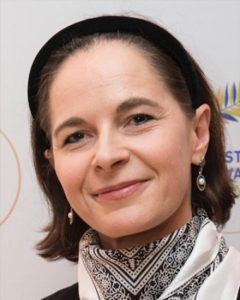
Yasmine Belkaid
remote speaker
National Institute of Allergy and Infectious Diseases (NIH)
USA
EMBO | EMBL Symposium
This conference will take place at EMBL Heidelberg, with the option to attend virtually.
Human microbiota – the collection of microbes living in and on our body – have a significant impact on human health and well-being. They have been associated with numerous diseases, yet we are still far from understanding their role in the context of lifestyle and genetics. Various initiatives are underway around the world to survey the human microbiota at several body sites, characterise them, understand their interactions with the human hosts, elucidate their role in diseases, and design possible therapeutic or dietary interventions. There is a new wave of studies mining the human microbiota for health-relevant bioactive compounds, for characterising specific microbial strains and for cataloguing the human microbiota from all across the globe. This conference will provide plentiful opportunities for researchers to learn about and to connect to important developments in studying the human microbiota. The return of this established meeting will bring together the community for a timely, in-person symposium picking up on developments across the field since the last edition in 2018.
For 2023, sessions will focus on the human microbiome across biological time and in nutrition and drugs, host-microbe interactions, integrative approaches in microbiome research and methodological advances in microbiome analysis. The final session will look to the future of microbiome research and translation.
“This meeting was in my top 3 of best meetings ever that I attended. The atmosphere was very lively, with lots of good discussions with diverse scientists. The topic, microbiome research, was covered extremely well. I am looking forward to attending the next time this meeting is taking place!”
– Peter van Baarlen, Wageningen University, the Netherlands.
.
Please see EMBL’s COVID-19 safety recommendations if attending the on-site event.

remote speaker
National Institute of Allergy and Infectious Diseases (NIH)
USA
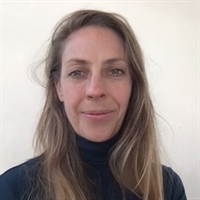
Wageningen University
The Netherlands
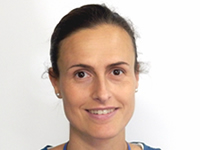
Spanish National Research Council
Spain
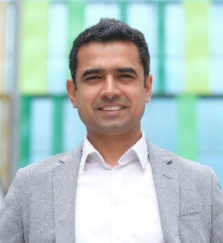
Luxembourg Institute of Health
Luxembourg
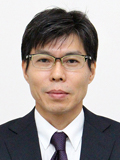
Keio University School of Medicine
Japan
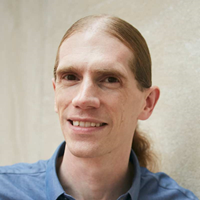
Harvard University
USA

University of California, San Diego
USA

University of Antwerp
Belgium

Max Planck Institute for Biology
Germany
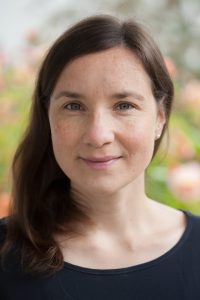
University of Tübingen
Germany
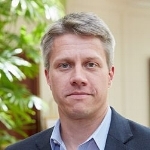
University of Michigan
USA
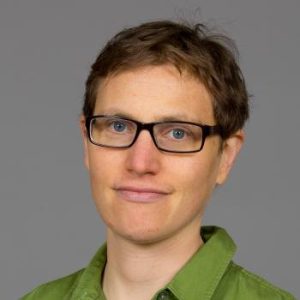
Stanford University
USA
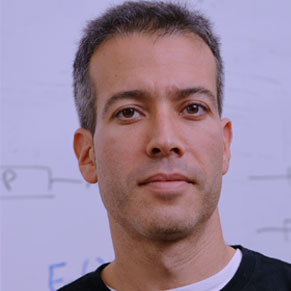
Weizmann Institute of Science
Israel
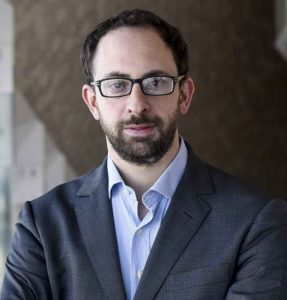
Saint-Antoine Hospital
France
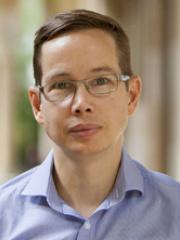
Queensland University of Technology
Australia
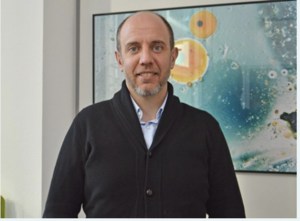
University of Luxembourg
Luxembourg
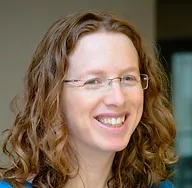
The Hebrew University of Jerusalem
Israel

University of Groningen
The Netherlands

University of Copenhagen
Denmark
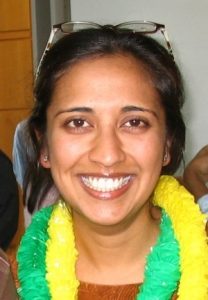
Stanford University
USA
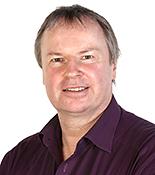
EMBL Heidelberg
Germany
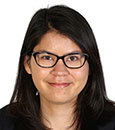
EMBL Heidelberg
Germany
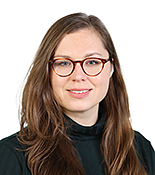
EMBL Heidelberg
Germany
Got something to say? Tweet it! #EESMicrobiome
| Time (Europe/Berlin) | Speaker |
|---|---|
| 11:15 – 13:00 | Registration and light refreshments |
| 11:45 – 12:45 | Pre-conference workshop “Robust and versatile ultra-high-throughput single-microbe genome sequencing” by Atrandi Biosciences (registration required) |
| 13:00 – 13:30 | Opening remarks and lightning talks by Scientific Organisers |
| Session 1: Methodological advances in microbiome analysis Session chair: Manimozhiyan Arumugam | |
| 13:30- 14:00 | A pipeline for developing novel therapeutics from the human microbiome Gene Tyson – Queensland University of Technology, Australia |
| 14:00 – 14:15 | Ex vivo cultivation model of the complex human gut microbiota for investigating modulation approaches and spatial interactions Annelies Geirnaert – ETH Zurich, Food Biotechnology, Switzerland Not available on demand |
| 14:15- 14:30 | Detecting Natural Selection in the Human Microbiota Sur Herrera Paredes – Universidad Nacional Autónoma de México, Mexico |
| 14:30- 15:00 | Systems ecology of the human expobiome Paul Wilmes – University of Luxembourg, Luxembourg |
| 15:00 – 15:30 | Coffee break and meet the speakers |
| 15:30 – 15:45 | Identification of eukaryotic symbionts and diet as bycatch in human gut microbiome data Oleksandr Maistrenko – Royal Netherlands Institute for Sea Research, Netherlands |
| 15:45- 16: | Kinetic modeling and in vitro fermentation reveal how gut microbiota impacts bioactivation and bioavailability of phytoestrogens Maja Stevanoska – ETH Zurich, Switzerland Not available on demand |
| 16:00- 16:30 | Ultra-fast, reference-free genomics algorithm discover novel genomic regulation in the microbial world Julia Salzman – Stanford University, USA (Remote speaker) |
| 16:30 – 17:00 | The Isala project and the vaginal microbiome Sarah Lebeer – University of Antwerp, Belgium |
| 17:00 – 18:30 | Global Grants for Gut Health symposium 17:00 – 17:05 Welcome and Introductory Remarks Ami Bhatt – Stanford University, USA 17:05 – 17:30 Bile Acid Conjugation as a New Mechanism of Host-Microbiome Crosstalk Robert Quinn – Michigan State University, USA 17:30 – 17:55 Using genomics to decode infant dietary diversity and microbiome maturation Lawrence David – Duke University, USA 17:55 – 18:20 Gut microbiome metabolites and growth in children at risk of malnutrition Evans Mudibo – Wageningen University / KEMRI-Wellcome Trust Research Programme 18:20 – 18:25 Concluding Remarks Ami Bhatt – Stanford University, USA |
| 18:30 – 20:00 | Dinner in EMBL Canteen |
| 20:00 – 21:00 | After dinner drinks and speed networking (optional, 20:00-20:30) |
| Time (Europe/Berlin) | Speaker |
|---|---|
| Session 2: The human microbiome across biological age Session chair: Peer Bork | |
| 09:30 – 10:00 | Maternal-infant microbiota: Factors shaping microbial transfer, assembly and evolution Maria Carmen Collado – Spanish National Research Council (CSIC), Spain |
| 10:00 – 10:15 | Longitudinal culturing of the developing human microbiome reveals temporal and spatial differentiation between distal body sites Sara Di Simone – Hudson Institute of Medical Research, Australia |
| 10:15 – 10:30 | Tracking the transmission of the gut microbiome: a one health perspective Mireia Valles-Colomer – Pompeu Fabra University, Spain |
| 10:30 – 11:00 | Coffee break and meet the speakers |
| 11:00 – 11:30 | Toward the development of defined microbial therapeutics Kenya Honda – Keio University School of Medicine, Japan Not available on demand |
| 11:30 – 11:45 | Gut metagenomic profiling of 1,800 African women reveals novel microbial diversity and associations with cardiometabolic health Jakob Wirbel – Stanford University, USA |
| 11:45 – 12:00 | Unsaturated long-chain fatty acids differentially modulate growth of vaginal Lactobacillus species Meilin Zhu – MIT, USA Not available on demand |
| 12:00 – 12:30 | Longitudinal Variability of Bifidobacterium Species in the Infant Gut is Independent of Maternal Milk HMO Composition Moran Yassour – The Hebrew University of Jerusalem, Israel Not available on demand |
| 12:30 – 14:00 | Lunch |
| Session 3: The human microbiome’s response to nutrition and drugs Session chair: Ami Bhatt | |
| 14:00 – 14:30 | The consequences of drugging the gut microbiome – from the individual microbe to the host Lisa Maier – University of Tübingen, Germany Not available on demand |
| 14:30 – 14:45 | Baseline gut microbiome predicts the efficacy of randomized oral antihypertensives in patients with essential hypertension Lianmin Chen – Nanjing Medical University, China |
| 14:45 – 15:00 | Emergence of community behaviors in the gut microbiota upon drug treatment Sarela Garcia-Santamarina – ITQB NOVA, Portugal |
| 15:00 – 15:30 | Coffee break and meet the speakers |
| 15:30 – 16:00 | Dietary fiber and mucin degrading bacteria in inflammatory bowel disease Eric Martens – University of Michigan, USA |
| 16:00- 16:15 | Investigating microbial dark matter unveils a consistent gut metagenomic biomarker for response to immune checkpoint blockade across diverse cohorts Chan Yeong Kim – EMBL Heidelberg, Germany |
| 16:15 – 16:30 | Immunotherapy and microbiome – unique set of taxa and genes associated with antibiotics use Giacomo Vitali – INRAE, France |
| 16:30 – 17:00 | Gut Microbial Synthetic communities to study how microbial ecologic networks collaboratively ferment glycans from diet and mucin Clara Belzer – Wageningen University, The Netherlands |
| 17:00 – 18:30 | Poster session 1 (odd numbers) with beer and snacks Please see the poster overview here. |
| Free evening |
| Time (Europe/Berlin) | Speaker |
|---|---|
| Session 4: Host-microbe interactions Session chair: Nicola Segata | |
| 09:30 – 10:00 | Silent flagellins, or how the gut immune system turns a blind eye Ruth Ley – Max Planck Institute for Biology, Germany |
| 10:00 – 10:15 | Bacterial DNA inversions and functional plasticity during inflammation and encounter with bacteriophages Shaqed Carasso – Technion – Israel Institute of Technology, Israel |
| 10:15 – 10:30 | Host-Microbiome Interactions between Lesional Skin Microbiome and Genomic Profiles in Psoriasis Susceptibility Loci Predisposes to Psoriasis Vulgaris in Indian Patients Souvik Mukherjee – National Institute of Biomedical Genomics, India |
| 10:30 – 11:00 | Coffee break and meet the speakers |
| 11:00 – 11:30 | Leveraging diet to engineer the gut microbiome Mahesh Desai – Luxembourg Institute of Health, Luxembourg Not available on demand |
| 11:30 – 11:45 | A role for the gut microbiome in determining the rate of progression of amyotrophic lateral sclerosis Maria Emilia Panzetta – Duke University, USA |
| 11:45 – 12:00 | Extravesicles secreted by human gut GABA-producing Bacteroides sp.: a possible shuttle mechanism for neuroactive metabolites Basit Yousuf – University of Ottawa, Canada |
| 12:00 – 12:30 | Talk title tbc Yasmine Belkaid – National Institute of Allergy and Infectious Diseases (NIH) – remote speaker |
| 12:30 – 14:00 | Lunch and Meet the editors |
| Session 5: Integrative approaches in microbiome research Session chair: Maria Carmen Collado | |
| 14:00 – 14:30 | Microbiome multi-omics and the Human Microbiome Bioactives Resource Curtis Huttenhower – Harvard University, USA |
| 14:30 – 14:45 | Microbial sub-species diversity and its interactions with host physiology Liron Zahavi and Saar Shoer – Weizmann Institute of Science, Israel |
| 14:45 – 15:00 | Multi-view integration of microbiome data for predicting host disease Efrat Muller – Tel Aviv University, Israel |
| 15:00 – 15:30 | Coffee break and meet the speakers |
| 15:30- 16:00 | Development of gut microbiome and virome during the first year of life Alexandra Zhernakova – University of Groningen, The Netherlands |
| 16:00 – 16:15 | Gut microbial genetic architecture of human health Yue Zhang and Doaming Wang – University Medical Center Groningen, The Netherlands Not available on demand |
| 16:15 – 16:30 | Exploration of >1000 human gut viromes and matched metagenomes discovers phages with unexpected integration potential and broad host range Lore Van Espen – KU Leuven, Belgium |
| 16:30 – 17:00 | Personalized medicine based on deep human phenotyping Eran Segal – Weizmann Institute of Science, Israel |
| 17:00- 18:30 | Poster session 2 (even numbers) with beer and snacks Please see the poster overview here. |
| 18:30 – 00:00 | Conference dinner at Heidelberg Castle with band (limited seating, first come first served) |
| Time (Europe/Berlin) | Speaker |
|---|---|
| Session 6: Future outlook for microbiome research and translation Session chair: Moran Yassour | |
| 09:30 – 10:00 | High throughput approaches for integrated microbiome and metabolome studies Rob Knight – University of California, San Diego, USA |
| 10:00 – 10:15 | Unraveling the complex interplay between the human gut microbiome, diet, and cardiometabolic health from the ZOE PREDICT studies Francesco Asnicar – University of Trento, Italy |
| 10:15 – 10:30 | Revealing the reservoir and spread of antimicrobial resistance in the human gut microbiota using the controlled human infection model Irina Chelysheva – University of Oxford, United Kingdom |
| 10:30 – 11:00 | Coffee Break and Meet the speakers |
| 11:00 – 11:30 | Host-microbiome tryptophan metabolism in IBD Harry Sokol – Saint-Antoine Hospital, France |
| 11:30 – 11:45 | Fecal metabolic dysbiosis is associated with 30-day mortality of patients on the medical intensive care unit Alexander de Porto – University of Chicago, USA |
| 11:45 – 12:00 | Harnessing gut microbiota for risk assessment and therapeutics of NAFLD Yueqiong Ni – Leibniz Institute for Natural Product Research and Infection Biology – Hans Knöll Institute (HKI), Germany (Remote speaker) |
| 12:00 – 12:15 | Key metabolic interactions define microbiota response to nutrient changes Remy Young – Hudson Institute of Medical Research, Australia |
| 12:15 – 12:30 | Discovery and development of anaerobic microbial choline metabolism inhibitors that target novel proteins beyond the choline utilization gene cluster Amelia Woo – Harvard University, USA Not available on demand |
| 12:30 – 12:45 | Closing Remarks and Poster Prize |
| 12:45 – 13:15 | Packed Lunch and departure |
| 13:15 | Buses to downtown Heidelberg and 1 bus to Frankfurt airport (terminal 1 (30 EUR), tickets may be purchased on-site) |
On-site registration fees include admission, conference materials, COVID-19 safety measures, meals and coffee breaks. Participants are expected to book and pay their own accommodation and travel expenses.
Virtual registration fees include access to all of the talks (livestreamed and on demand) and facility to submit questions.
| On-site Academia | €700 |
| On-site PhD Student | €600 |
| On-site Industry | €900 |
| Virtual Academia | €200 |
| Virtual PhD Student | €150 |
| Virtual Industry | €250 |
A letter to support your visa application will be issued, on request, once payment of the registration fee is confirmed.
We recommend that you book your visa appointment as soon as possible, to avoid any delay with your visa application.
Accredited journalists may be eligible to register for complimentary press registration. Registrants may be required to provide accreditation or equivalent proof of press membership after registration. Please contact Aline Schnieder for more information. Please note that we do not offer complimentary registrations for editors of scientific journals.
Registration will be on a first come, first served basis. Your place can only be confirmed after payment of the registration fee. If you are added to our waiting list, please consider taking advantage of our offerings to participate virtually.
On-site participants: Types of payments accepted are international bank transfers and credit card payments.
Virtual participants: We are only able to accept card payments. In exceptional cases we can accept bank transfers. Please contact events@embl.de for details.
Only participants registering to attend the on-site event are eligible to submit an abstract. Abstracts will not be accepted from virtual participants.
After registration you can submit your abstract via a separate link that will be provided in the email confirmation. Alternatively, you can access the link on the confirmation page directly after registering. The same login credentials are used for both processes.
Please note:
Abstract body: The limit of 2000 characters refers to manually typed text and excludes spaces. If an error occurs try using a different web browser (preferably Google Chrome or Mozilla Firefox).
If you copy-paste the text into the form, hidden formatting might still be included which may cause the text to exceed the 2,000 character limit resulting in an error message. We recommend you clear all formatting before pasting in the text.
If you have special symbols in your text, make sure you are using Unicode characters, otherwise these will not be recognised.
Title: The title should not exceed 20 words. Only the first word of the title should start with a capital letter and the rest should be lowercase.
Authors and affiliations: Please fill in the author’s details as requested in the online form. The compulsory fields are: First Name, Last Name, Organisation Name (Affiliation or Company), Country and Email.
Kindly mark only one author in the role of First Author and please don’t forget to indicate who will be the Presenter.
Please enter your co-authors correctly via the system by adding accounts together with their organisation/institute. Do not copy-paste them into the body of the abstract text, as they will not be indexed in the abstract book.
Presentation types: When submitting your abstract, you can apply for an oral or poster presentation. A selection process will take place with the results announced 2-3 weeks after the abstract submission deadline.
For detailed instructions on how to submit a conference abstract, follow the instructions provided in this video.
Please check our FAQs pages for further information on how to submit an abstract.
Limited financial assistance is provided by the EMBL Advanced Training Centre Corporate Partnership Programme and EMBO in the form of both registration fee waivers and travel grants. These are available for on-site participants at EMBL Conferences and EMBO|EMBL Symposia, and for on-site and virtual participants at EMBO Workshops. We are currently working on securing funding for all virtual participants, and ask that you please apply for financial assistance for both on-site and virtual participation.
Your place in the meeting is only confirmed by paying the registration fee, which is mandatory even when receiving a fee waiver.
The fee waiver will cover the registration sum that you have paid to attend the course or conference.
The travel grant will cover the cost of travel to an on-site event (airfare, train, bus, taxi, accommodation, visa, and/or registration fees*) and is provided up to specified caps which are normally as follows:
–up to €400 for participants travelling to an EMBL Conference or EMBO|EMBL Symposium from within Europe.
–up to €1000 for participants travelling to an EMBL Conference or EMBO|EMBL Symposium from outside Europe.
–up to €500 for any participant travelling to an EMBO Workshop.
–up to €1000 for any participant working in Chile, India, Singapore or Taiwan travelling to an EMBO Workshop.
–up to €700 for any participant working in Croatia, Czech Republic, Estonia, Greece, Hungary, Italy, Lithuania, Luxembourg, Poland, Slovenia, and Turkey travelling to an EMBO Workshop.
*Registration fees are only covered for EMBO Workshops
The organisers may reduce the grant cap to accommodate more participants. Recipients will be notified of their travel cap amount when they are informed of the outcome of their application. Original receipts must be provided with your signature for all costs incurred within two months of completion of travel. Scanned copies cannot be accepted.
On-site participants
You may apply for financial assistance when submitting your abstract. In your application you will be asked to answer questions regarding why your lab cannot fund your attendance and how your attendance will make a difference to your career. Application for financial support will not affect the outcome of your registration application.
Virtual participants
If you are attending virtually, you can apply for financial assistance in the submission portal by the abstract deadline. Read the instructions on how to apply for financial assistance. Only submissions for financial assistance will be accepted. Presentation abstracts cannot be submitted here and will be declined.
In your application you will be asked to summarise your current work, answer questions regarding why your lab cannot fund your attendance, and how your attendance will make a difference to your career. Application for financial support will not affect the outcome of your registration application.
The scientific organisers will select the recipients of all financial assistance during the abstract selection process. Results will be announced approximately 6 – 8 weeks before the event start date, however for some events this may be delayed. Selection results do not impact your admission to the meeting. Selection is based on scientific merit, your current work or study location, the reasons for needing financial support, and the impact this event will have on your career.
Costs will be reimbursed after the meeting only once a reimbursement form and original receipts (from travel costs) have been received.
View our list of external funding opportunities and information on attending a conference as an event reporter.
For further information about financial assistance please refer to the FAQ page.
Accommodation is not included in the conference registration fee.
As further changes in our events are possible due to COVID-19, you should book flights, trains and hotels with flexible options and favourable cancellation conditions.
The hotels below have rooms on hold for participants until 23 August 2023, in some cases at special rates. Please email the hotel directly, quoting the booking code EES23-08 to confirm the exact price of the room.
Conference shuttle buses are free of charge for participants, and depart from designated bus stops near the hotels to EMBL and back, mornings and evenings.
You can now find the Conference Bus Schedule here.
The bus stops for this conference are:
View Conference shuttle bus stops and hotels in a larger map. Please note that not every bus stop will be used for every event.
Address: EMBL, Meyerhofstraße 1, 69117 Heidelberg, Germany. For further information on getting to EMBL Heidelberg visit Public Transportation to the Venue. For information about accommodation and local transportation please refer to the FAQ page.
All meals and coffee breaks are included in the registration fee. Our catering staff will prepare a wide variety of vegetarian meals, meat and fish dishes, soups, pasta, fresh fruit and vegetables, as well as a variety of desserts.
Please wear your badge at all times when serving yourself.
No food or drinks are allowed in the auditorium.
There are lockers available next to the stairs leading down into the Auditorium. You will find some of those equipped with sockets to charge your smartphone/tablet etc.
In most places the electricity is 220 volts AC (50 cycles). An adaptor and a plug that fits the German socket may be needed for your appliances/laptop (i.e. American, Japanese, etc.). A USB charging station for electronic devices is available at the registration desk.
If you are interested in purchasing an EMBL souvenir (products presented in the glass display in the registration area), please ask at the registration desk for more information.
Please read EMBL’s COVID-19 safety policy for on-site events.
Do not smoke in any EMBL building.
Eating and drinking is prohibited in the Auditorium and all laboratories.
Do not enter any restricted areas or the laboratories unless instructed to do so.
If first aid is required …
In case of fire …
Beyond first aid…
Please remember to bring your own medication, if needed, to the conference. Note that the next pharmacy is a 4-minute drive from the EMBL, but for many medications you will be required to see a doctor to get a prescription.
Ensure in advance that your medical insurance will cover you during your visit in the event that you do need to see a doctor while in Heidelberg. In any case, the EMBL Course and Conference Office will assist you to get to the pharmacy and a doctor of your choice if necessary.
Wi-Fi is available everywhere on the premises using the EMBL-Events network and the event specific password, which will be provided on site. The eduroam network (secure, world-wide roaming access service developed for the international research and education community) is also available.
‘’Lost and Found’’ are kept at the registration desk until the end of the conference.
There are lockers available on-site to store your luggage, which require a 2 EURO coin to operate. There is another luggage room on level E0, which is free to use but remains unlocked during the conference.
There is a nursing room available in the ATC Rooftop Lounge on level A29.
During the conference an EMBL Photographer may be taking photographs. If you would not like to appear in these, please inform the photographer or a member of the Course and Conference Office.
We can help printing your boarding passes/train ticket. Please send it to events@embl.de and collect your print-outs at the registration desk.
There is a room for prayer, mediation and yoga located on level E0 behind the Auditorium. Please be respectful of other participants using the room.
A variety of activities in Heidelberg can be found on the website of Heidelberg Marketing.
During the event we provide conference shuttle buses to and from EMBL. In addition, there is the public bus 39A that serves the EMBL campus and taxis can be easily booked at any time. Information on the conference shuttle buses can be found on the individual event website and more detailed information on travelling to EMBL can be found on our Travel Information page.
| Where is the nearest Covid test centre? | Wo ist das nächste Covid-Testzentrum? |
| Hello | Hallo |
| Goodbye | Auf Wiedersehen |
| Good morning | Guten Morgen |
| Good afternoon | Guten Tag |
| Good evening | Guten Abend |
| Good night | Gute Nacht |
| I’m sorry | Tut mir leid |
| Excuse me… | Entschuldigen Sie |
| How are you? | Wie gehts? |
| I’m fine thanks. And you? | Mir geht es gut , danke, und dir/Ihnen? |
| What is your name | Wie heisst du? Wie heissen Sie? |
| My name is | Ich heisse |
| Do you speak English | Sprechen Sie Englisch? |
| I don’t understand | Ich verstehe nicht |
| Please speak more slowly | Können Sie bitte langsamer sprechen |
| Thank you | Dankeschön |
| Where is the toilet? | Wo ist die Toilette? |
| Please call me a taxi | Bitte rufen Sie mir ein Taxi |
| How do I get to….? | Wie komme ich zum/zur…..? |
| A beer/two beers please | Ein Bier/zwei Bier bitte |
| A glass of red/white wine please | Ein Glas Rot/Weisswein bitte |
| The menu, please | Die Speisekarte, bitte |
| Is there a local speciality? | Gibt es eine Spezialität aus dieser Gegend? |
| I’m Vegetarian | Ich bin Vegetarier |
| It was delicious | Es war hervorragend |
| The bill, please | Die Rechnung, bitte |
| I have a headache | Ich habe Kopfschmerzen |
| I have a sore throat | Ich habe Halsschmerzen |
| My stomach hurts | Ich habe Magenschmerzen |
| I’m allergic to | Ich bin allergisch gegen |
| I need a doctor who speaks English | Gibt es einen Arzt, der Englisch spricht? |
| Where is the nearest COVID-19 test centre? | Wo ist das nächste COVID-19 Testzentrum? |
Please note that only on-site participants are able to submit abstracts and participate in the poster sessions.
We are using an event platform for this conference. More information about the platform will be shared ahead of the conference.
Additional information can be found in our Code of Conduct.
It is important to stay healthy and move around, especially when you are attending an event virtually. We have put together a few coffee break stretches and yoga videos in the conference platform for you to enjoy during the event.
Please use the Q&A function in the event platform.
If you have any other questions, you can go to the Help Desk in the event platform. Click on ‘more’ on the top menu and click Help Desk.
The programme is planned based on the Europe/Berlin time zone, unless otherwise stated. Please take your time zone into consideration when planning your attendance
Please find additional information including FAQs, terms and conditions, COVID-19 safety policy and travelling to EMBL on our Information for participants page.
COVID-19 information for on-site events at EMBL Heidelberg can be found in our COVID-19 FAQs.
Silver sponsor
Bronze sponsors
Session sponsor
Event sponsor
Media partners
Disease Models & Mechanisms, The Company of Biologists Journal
EMBO Molecular Medicine, an EMBO Press journal
FEBS Journal, a FEBS Press journal
FEBS Letters, a FEBS Press journal
FEBS Open Bio, a FEBS Press journal
International Union of Biochemistry and Molecular Biology
Open Biology, a Royal Society journal
Bio Essays, a Wiley Online Library
Advanced Biology, a Wiley Online Library
Sponsorship opportunities
We offer a variety of event sponsoring possibilities, with the flexibility to select a set sponsorship package or combine individual sponsorship options to suit your event budget. Discounts are available for companies sponsoring multiple events at EMBL Heidelberg. View other conferences, or contact sponsorship@embl.de for further information on sponsoring possibilities.
If you are interested in becoming a media partner of this event, please visit our media partnerships webpage.
EMBL wishes to warn sponsors of EMBL conferences and courses of fraudulent schemes purporting to offer sponsorship opportunities on behalf of EMBL or affiliated with EMBL officials. One current scam campaign of which we are aware is conducted using the name ‘Judy Eastman’ (judy@gopcontact.a2hosted.com) and entails approaches to sponsors offering sponsorship opportunities on EMBL’s behalf. Please be kindly advised that all relevant communication regarding sponsorship of EMBL conferences, symposia and courses is handled by EMBL directly and is sent from an official EMBL account. EMBL does not work with any external providers on sponsorship acquisition.
Please also note that:
Suspicious communications purportedly from, for or on behalf of EMBL should be reported to EMBL at the following email address sponsorship@embl.de.
Want to let others know you’re attending this event? Take a look at our shareable media and feel free to use them in your social media channels or presentations.
For on-site participants only.
This industry webinar will be hosted by our sponsor Atrandi Biosciences prior to the EMBO | EMBL Symposium: The human microbiome
on Wednesday 20 September 2023, 11:45 – 12:45
Participation in this workshop is free of charge for registered on-site conference attendees. The number of available places is limited (first come, first served).
All registered conference attendees will receive an email with a registration link.
ABSTRACT
Robust and versatile ultra-high-throughput single-microbe genome sequencing
by Linas Pupelis, Justyna Mazul
Atrandi Biosciences
Whole-genome and targeted sequencing open a window to understanding the function of unculturable microorganisms. On one hand, metagenomic sequencing is attractive for its straightforward sequencing library preparation from bulk environmental samples but only offers limited resolution into individual species. On the other hand, single-microbe sequencing offers true single-clone resolution but can only meaningfully address the high biological diversity expected in environmental samples if performed on thousands of individual cells in parallel. To satisfy the need to study such large numbers of single-microbes per sample, well- and droplet-based approaches keep evolving in parallel to provide single-cell compartmentalization required during sequencing library preparation. However, these approaches suffer from a fundamental trade-off between throughput and versatility. Being individually addressable, microwells enable multi-step processing but are not scalable. Droplets offer a throughput of up to a million cells per experiment but only allow a limited number of processing steps to be performed. The later limitation is severely felt when it comes to microbial research, as harsh conditions typically required for lysis are incompatible with downstream nucleic acid barcoding steps. Our Semi-Permeable Capsule (SPC) technology combines the throughput of droplets with the versatility of wells by enabling a virtually unlimited number of processing steps on genetic material from millions of individual microbes in parallel. We demonstrate the use of SPCs for barcoding >100,000 individual microbial genomes to obtain single-microbe whole genome sequencing data of unprecedented quality.
Date: 20 - 23 Sep 2023
Location: EMBL Heidelberg and Virtual
Venue: EMBL Advanced Training Centre
Deadline(s):
Abstract submission: Closed
Registration (On-site): Closed
Registration (Virtual): Closed
Organisers:
Contact: Lea Hohmann